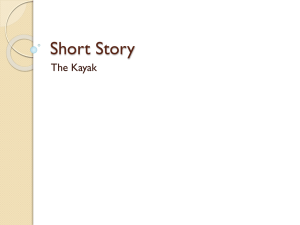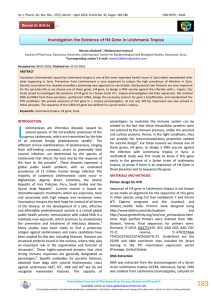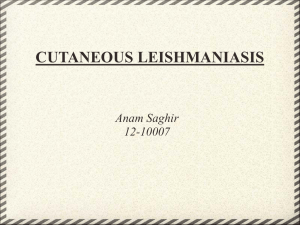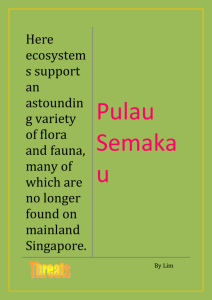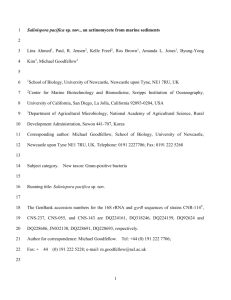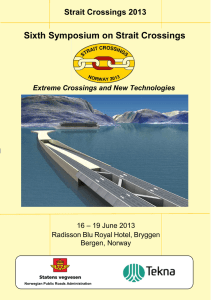From the preliminary results publication: “The training week took
advertisement
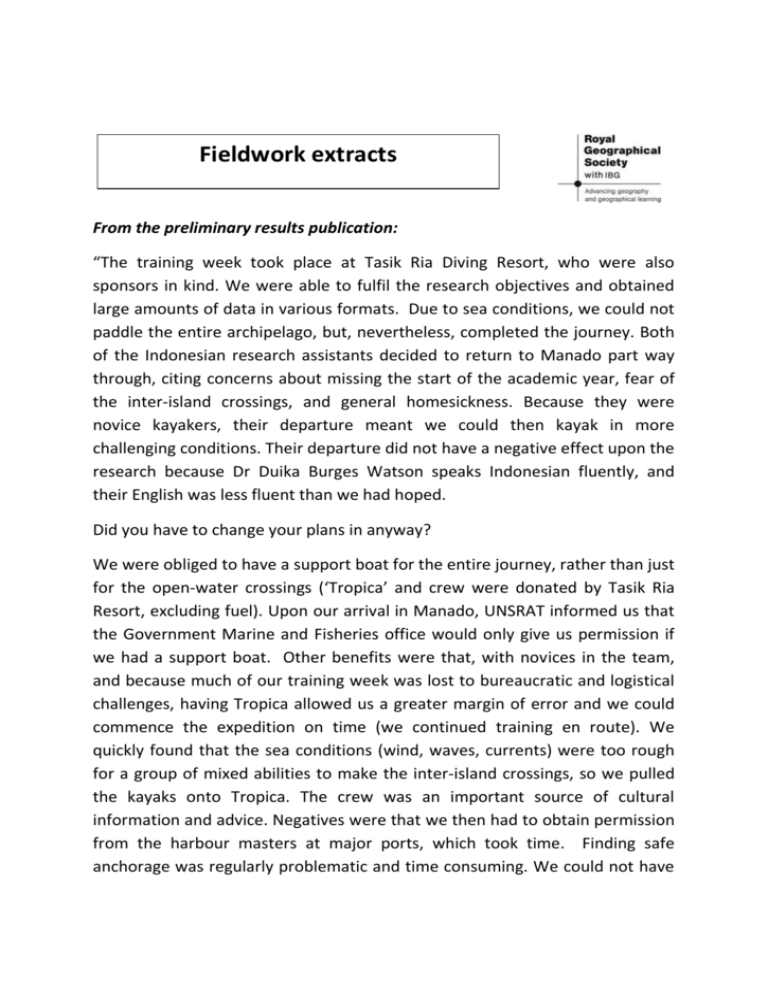
Fieldwork extracts From the preliminary results publication: “The training week took place at Tasik Ria Diving Resort, who were also sponsors in kind. We were able to fulfil the research objectives and obtained large amounts of data in various formats. Due to sea conditions, we could not paddle the entire archipelago, but, nevertheless, completed the journey. Both of the Indonesian research assistants decided to return to Manado part way through, citing concerns about missing the start of the academic year, fear of the inter-island crossings, and general homesickness. Because they were novice kayakers, their departure meant we could then kayak in more challenging conditions. Their departure did not have a negative effect upon the research because Dr Duika Burges Watson speaks Indonesian fluently, and their English was less fluent than we had hoped. Did you have to change your plans in anyway? We were obliged to have a support boat for the entire journey, rather than just for the open-water crossings (‘Tropica’ and crew were donated by Tasik Ria Resort, excluding fuel). Upon our arrival in Manado, UNSRAT informed us that the Government Marine and Fisheries office would only give us permission if we had a support boat. Other benefits were that, with novices in the team, and because much of our training week was lost to bureaucratic and logistical challenges, having Tropica allowed us a greater margin of error and we could commence the expedition on time (we continued training en route). We quickly found that the sea conditions (wind, waves, currents) were too rough for a group of mixed abilities to make the inter-island crossings, so we pulled the kayaks onto Tropica. The crew was an important source of cultural information and advice. Negatives were that we then had to obtain permission from the harbour masters at major ports, which took time. Finding safe anchorage was regularly problematic and time consuming. We could not have conducted the research without the kayaks because Tropica’s draft was too deep to cross the reefs; the only way to approach the villages was by kayak. Did you encounter any problems whilst in the field, particularly related to health and safety? Despite the proficiency of Tropica’s crew, our first big crossing was frightening (Nain to Biaro). Thus, due to weather conditions (many days of wind, generating large waves), we elected to remain on Pulau Selanka for 5 days as we waited for the conditions to improve before crossing to Ruang and Tagulandang. Vonna Keller suffered a minor toe injury, which, due to the tropical environment and constant immersion in salt water, became infected and required on-going treatment. Our medical training, equipment and medicines were sufficient to manage this in the field.” From the blog on the 15 August Winded in on Paradise - Selanka Island “Johanna here: we have been winded in at Selanka, a tiny island off the village of Lamanggo on Pulau Biaro, for an additional 3 days now. We have found ourselves the guests of a generous but absent owner of a private tropical hideaway, with the caretakers’ family for company – along with unseen tarsus monkeys the healthiest chickens we’ve ever seen, and 1500 mating pairs of imported tropical birds (including the reclusive Maleo bird). We’ve camped in the semi-wild garden, practiced kayak skills & snorkelled off the pristine beach, updated research reports, charged up our electronics via the solar chargers, day-paddled along the coast, & jumped off Tropica’s top deck when they joined us yesterday, in preparation for the crossing to Ruang. We are ready to leave as soon as the wind subsides and the waves diminish, but in the mean time we’ve thoroughly appreciated this little piece of paradise whilst we wait for safer seas.” From the blog on the 23 August What matters is that we’re all safe and happy “The title of this post comes from the words of a kind man – known as a bapak - whom we met at 11pm last night and bid farewell at 5:30am this morning. The bapak was part of a group of men who, having seen us kayaking yesterday, were so frightened that we might be bad people coming to do harm, walked to our ‘secluded’ campsite in order to see the bad people off – with torches, loud voices & machetes. Their fear immediately turned to concern when they saw four western women – concern because they had not heard about us from the local kepala desa (mayor). The only thing to do, they said, was for two of us to hike with him to see the mayor, whilst the other two stayed in camp under the protection of the rest of the men. So, Duika and I spent the next five hours hiking through rough jungle and tracks in the pitch dark. Lena and Vonna, unable to speak the local language, shared sweets, tea and campsongs with their protectors. They were rewarded with a coconut picked from the top of the palm, and the security of 8 chaps sleeping around their tent. Duika and I found ourselves walking back to the port and KD we had reported to the day before, where it turned out that the news of our stay on the island had not been passed on to the Secretary, who would normally pass it on to the villages. So, we hiked back in the dark, torches failing, arriving back at camp after 4am, whereupon all eighteen of us went to sleep for an hour. Our hosts departed when the sun came up. What started as a frightening event for all involved, ended with smiles, photographs and hugs on the coast. The moral of the story is, always keep the Secretary in the loop, and the only thing that matters is that we’re all safe and happy.”

